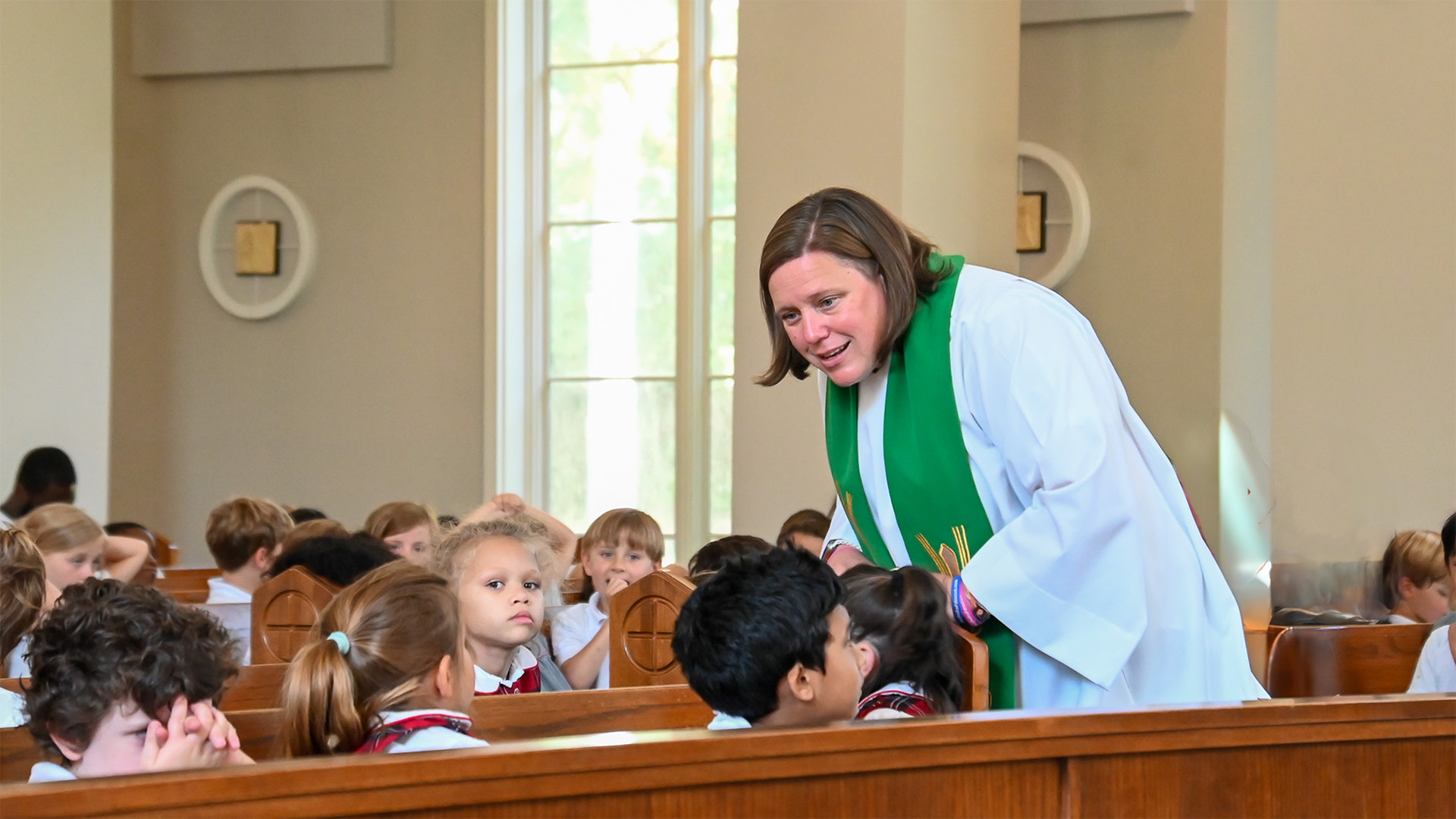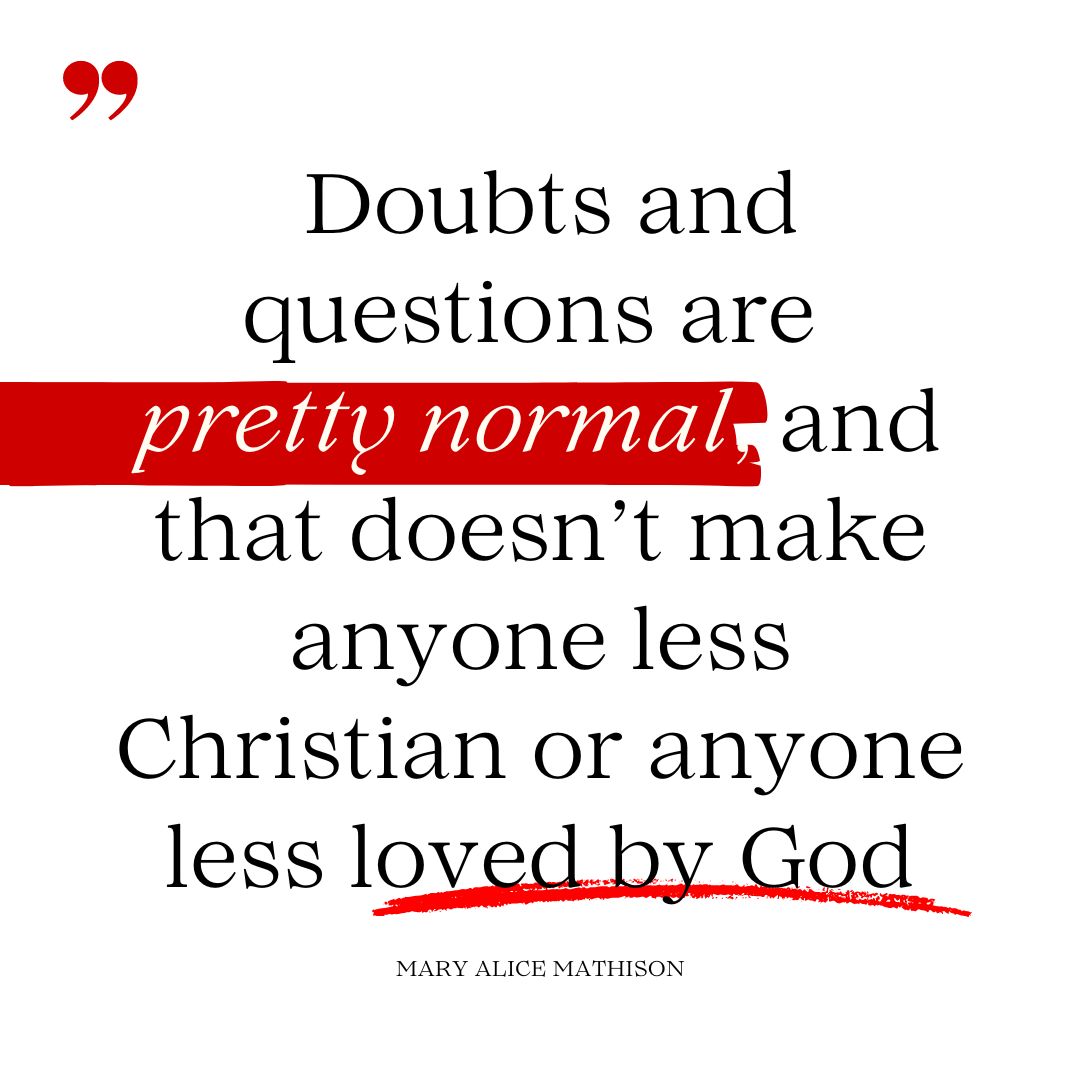
Faith, Legacy, and Episcopal Tradition.
St. Luke's Chaplain Reflects on the Journey to Her Calling
A
young girl stands in a church sanctuary, surrounded by beautiful stained-glass windows, and a high domed ceiling. She was born into a legacy of shepherds, and standing in this familiar space, the young girl can see the deep roots of tradition in the hard wood pews and hear the call to her future wafting from the pipe organ. This was a beautiful and sacred space for worship. Young Mary Alice Mathison began her journey into ministry that day, even if she couldn’t fully articulate it. The combination of worship and the reminder of God’s love sustained her when the road looked more like the curved veins of the marble altar than a straight path.
As a young student, Mary Alice grew up Episcopalian and both of her grandfathers and dad served as priests. Growing up at Episcopal Day School until 8th grade meant she was involved with Vacation Bible School, choir, acolyting during services, youth group, Camp Beckwith, and even preaching during her junior year at Christ Church Parish.
Despite her church involvement, difficult questions lingered. Mary Alice felt that not every tradition out there had the message that Jesus loved us no matter what and had small questions or doubts about God. She felt as if the universe, Jesus, or the Church might not be able to handle her doubts. Mary Alice worried that she wasn’t the perfect leader in her church, but now she has expanded her vision and knows that many people feel that way and many people wonder the same things that she did when she was younger. Mary Alice said, “It’s taken a long time, and going through a lot of different experiences, and being willing to sometimes get things wrong or come up short, but now I know doubts and questions of all varieties are pretty normal, and that doesn’t make anyone less Christian or anyone less loved by God.” She wants everyone to know that they are loved by God, doubts or not. This ultimately helped Mary Alice decide that she wanted to go into ministry.
Mary Alice initiated a conversation about discernment for ordination with a church priest, which helped her pay attention to her soul and be open to God's surprises in the future. After graduating high school, Mary Alice decided to attend Sewanee: The University of the South. Mary Alice double majored in History and Political Science and enjoyed a liberal arts approach to college, which emphasized forming the whole person as a student, athlete, and young adult. She was encouraged to think critically about the world, make friends, and take classes that she enjoyed. College is often associated with a job and financial stability, but Mary Alice discovered that it is about enjoying life and discovering new things, not being trapped within the world's expectations. She advises others to remember that college is just the next step, be open to discovering new things, and take breaks. Mary Alice says that it’s okay to change your mind, take breaks, and forge your path, regardless of others' advice. Celebrating differences is important in life.
When Mary Alice first started at St. Luke’s, she introduced a eucharist chapel for every first chapel of the month. Her reasoning for introducing this new tradition to St. Luke’s is that the Episcopal Church transitioned from Morning Prayer to Holy Eucharist in the 1970s, and for nearly 50 years, it has been the weekly Sunday service. As an Episcopal school, Mary Alice aims to introduce this tradition as a means of worship for the community. "Eucharist" means "thanksgiving," and she hopes to celebrate God's inward and spiritual grace through this sacrament. The Episcopal doctrine allows all baptized Christians to receive communion, regardless of their denomination, church attendance, or beliefs. However, anyone can come forward to receive a blessing if they choose. As the school has students and faculty from diverse backgrounds, she wants all chapel services to aim to create sacred spaces for community gratitude, reflection, and worship. Mary Alice also invites students to learn about its roots and emphasizes that this is just one way of approaching faith, not the only way people can approach faith or God. Mary Alice believes the eucharist at St. Luke's is crucial for students, faculty, staff, and families to know that they have a place to start and be welcomed in a faith community, ensuring they have a reliable source of support in case of future connections. Everyone is invited to the altar, and if they come forward with a heart open to God, the rest will work itself out. The intent of the heart is most important.
Her vision for chapel at St. Luke's in the future includes incorporating students' artwork into chapel and having more students consider giving chapel talks. Learning to talk about faith, questions, and stories of God's mystery and love brings hope to the world. Chapel invites everyone to be open to something bigger than themselves, learn something new, and reflect on their call to live in this world, especially with neighbors and enemies. It reminds us that God loves us, is with us, and will never leave us.
